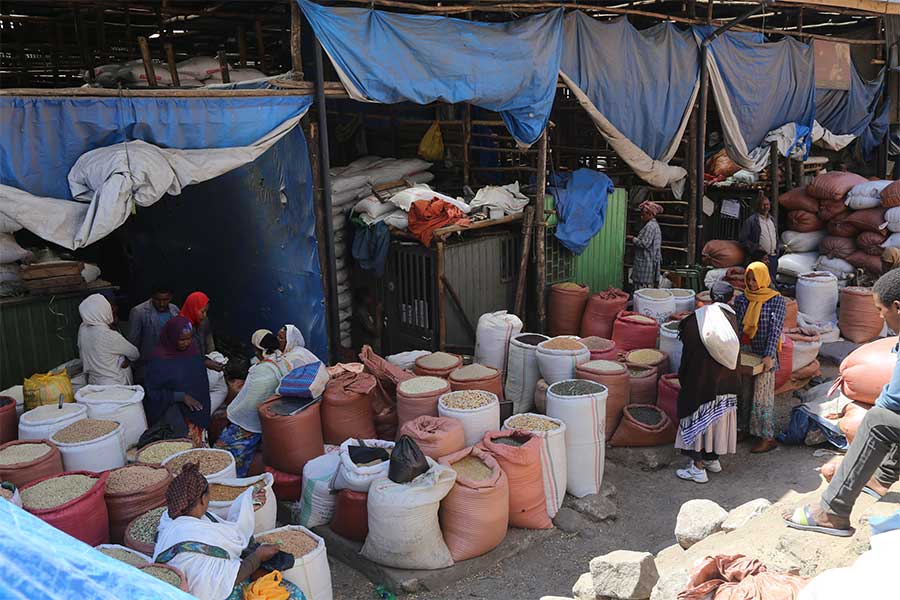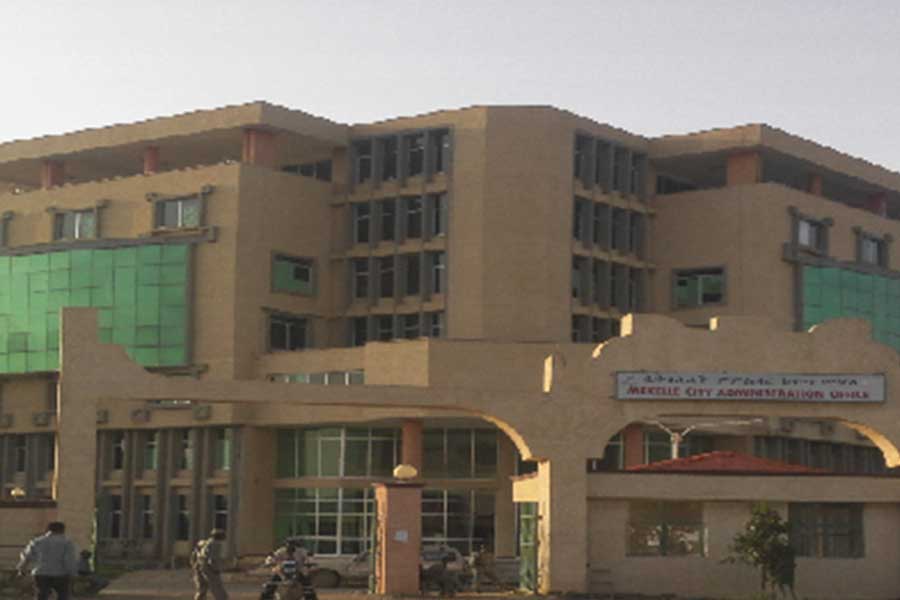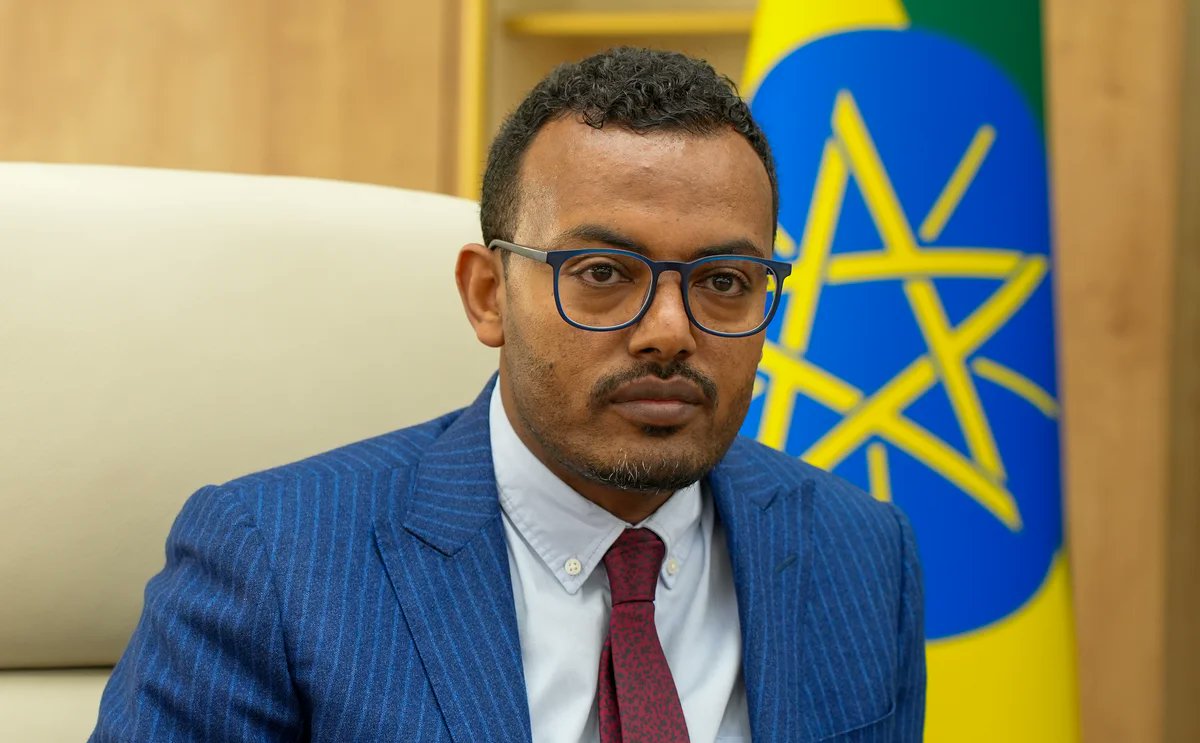
Agenda | Dec 28,2019
May 2 , 2020
By Abebe Abebayehu
In an effort to avert a constitutional crisis that would create a vacuum of governance, a number of fairly plausible ideas have been floated by scholars and practitioners. Whatever route is taken, the constitutionality of the option and the continuity of a strong and effective administration must never be put in question, writes Abebe Abebayehu, head of the Ethiopian Investment Commission.
Ever since the World Health Organisation (WHO) declared the Novel Coronavirus (COVID-19) a global pandemic on March 11, 2020, it has become a worldwide emergency. There is hardly any strand of life in Ethiopia that has not been impacted by COVID-19.
These extraordinary situations require extraordinary and all-encompassing measures designed to save lives, boost the health care infrastructure, and mitigate the socio-economic and political repercussions. But these measures also impose a heavy toll on the nation. A significant part of our economy, made up of travel, tourism, leisure and hospitality, has come to a standstill. The social distancing measures have hit at the core of our culture, forcing us to close our churches and mosques, threatening our uniquely treasured traditions of sharing our meals from the same plate and hand-feeding friends and family as a sign of affection and endearment. The promise of our free and democratic political life has found itself between a rock and a hard place.
The much-anticipated national elections originally scheduled for August this year have been the first major political and constitutional casualty of COVID-19. The level of our collective disappointment as a nation is a function of the level of our exalted expectations for these elections to break new ground, to produce, for the first time in the long history of this old nation a parliament in which a spectrum of ideas and policy options are represented, where there is a place for all who believe in freedom and brotherhood regardless of our ethnic, religious or other differences; a system in which the welfare of the whole is dependent on the welfare of the individual constituent parts.
Yet, the day these hopes would be realised has had to be pushed back because we first need to save lives and livelihoods and ensure the historic exercise of our democratic rights does not take place under the dark clouds of fear for our lives.
Our Constitution has anticipated the possibility of pandemics necessitating extraordinary measures and the suspension of some of our constitutional rights and freedoms through the declaration of a state of emergency. But it did not anticipate these two critical events occurring simultaneously – a pandemic striking at a time when the five-year general election is to take place. To this extent, Ethiopia finds itself in uncharted waters.
We are thus called upon to muster our ingenuity and sense of national unity once more to overcome this difficult period with our sense of patriotism intact and exercise our democratic rights in free and fair elections as soon as the situation permits.
The signs so far are promising. As a result of the decisive steps taken by our government to contain the spread of the disease and mitigate its impact, we can still hope that we will resume normal life sooner than most other parts of the world. In the meantime, however, we have to grapple with a nasty constitutional question – how to ensure that the pandemic-imposed deferment of the election does not leave our politics fractured, our government weakened and our democratic promise stymied.
For a fledgeling democracy such as ours, free and fair elections are a rare and precious opportunity that we all must cherish, uphold and protect. Our own history teaches us that our rulers are hardly ever controlled by the citizens; they often impose themselves upon us with the barrel of the gun, until they are forced out by the same means.
The August 2020 elections promised to break this vicious cycle for all of us, but COVID-19 has pushed that day further into the future. As citizens, it is our duty to make sure that day comes, and comes at the earliest possible moment once the COVID-19 crisis is behind us. What that also means is that all of us need to act responsibly and ensure a smooth transition between now and the day an elected government takes power.
In the realm of the legal imperative, it is important to stress that there can be no free and fair elections if the rule of law is not observed. The primary task of any government is to enforce law and order and guarantee public safety. While the country is under a COVID-19-imposed state of emergency, the primary task of the government is to save the lives of its citizens and protect their livelihoods.
Considering that COVID-19 spreads through human contact and physical proximity, the decision of the government to defer the elections until such time that we can resume our normal way of life, mingle freely and discuss and debate the issues, interrogate those who would claim to speak for us and decide whom to entrust our future with.
While all this is fairly common sense and acknowledged by everyone, the constitutional question is how to ensure the current parliament and the administration it established continue to be operational after September 2020 – when the term of both organs and the administration will expire as specified under the articles of the Constitution.
In an effort to avert a constitutional crisis that would create a vacuum of governance, a number of fairly plausible ideas have been floated by scholars and practitioners. These include amendment of the Constitution, dissolution of the parliament, seeking a constitutional interpretation from the House of Federation, or conducting the elections while still in some form of state of emergency.
These are all options contemplated by, and falling within the scope of the Constitution itself. But some political parties appear to be pushing for the establishment of a transitional caretaker government constituted by all political parties operating in the country.
The fundamental principle of the Constitution is that elections are the only source of political power. Not only is this proposal unconstitutional. It would also be a practical impossibility, since the transitional government would be made up of over 100 political parties of varying levels of presence, credibility and legitimacy.
This pandemic is already bad and its cure must not be allowed to be worse. We need to say "No" in one voice. No to anything that threatens our fledgeling democracy, and no to anything that puts our much-cherished and rarely recognised, let alone exercised, political rights and freedoms. Especially not at a time when our historical adversaries are rearing their heads and smelling opportunities to destabilise us and return us to the past. No!
While considering options that broadly fall within the scope of the Constitution, we need to exercise caution and be guided by some overriding considerations of principle.
For instance, whichever choice we take, the continuity of a strong and effective administration must never be questioned. Likewise, the well-being of the citizens, including their ability to exercise their rights to the fullest extent possible, must be safeguarded by all means.
The government must be able to ensure that free and fair elections are conducted at the earliest possibility, all constitutional rights and checks and balances are restored, and power transferred promptly to the parties mandated by the electorate in accordance with the Constitution.
Measured against these considerations of principle, we can easily rule out the option of dissolving the parliament and establishing a caretaker government. These options would leave the government with no power to get even a budget approved, let alone declare a state of war or protect the country against a foreign invasion.
Nor would the idea of holding elections under some version of a state of emergency extended beyond September pass the test of these criteria, since that would cast a shadow on the quality of democratic debate that precedes and informs the elections.
By the same token, while launching a process to amend the Constitution might be the easiest course to take, not least because the ruling party controls virtually all decision-making organs under the Constitution at both the federal and state level, the logistical cost involved in the exercise makes it less than optimal. It is a time when every penny must be directed towards saving lives and livelihoods endangered by the COVID-19 crisis.
This leaves us with only one plausible alternative – seeking an authoritative constitutional interpretation from the House of Federation. The House is well-positioned for the task at hand and is mandated to interpret and develop the Constitution, thereby guaranteeing that the Constitution is a living document whose most fundamental purpose is to sustain the polity and protect it from collapse caused by its own silence on certain matters.
PUBLISHED ON
May 02,2020 [ VOL
21 , NO
1044]


Agenda | Dec 28,2019

Radar | Sep 27,2020

Covid-19 | May 01,2020

Editorial | Apr 13,2024

Commentaries | Dec 16,2023

Fortune News | Aug 22,2020

Commentaries | Oct 03,2024

Verbatim | Jun 28,2025

Commentaries | Apr 28,2024

Radar | May 21,2022

Photo Gallery | 178214 Views | May 06,2019

Photo Gallery | 168421 Views | Apr 26,2019

Photo Gallery | 159196 Views | Oct 06,2021

My Opinion | 137056 Views | Aug 14,2021
Commentaries | Oct 25,2025

Dec 22 , 2024 . By TIZITA SHEWAFERAW
Charged with transforming colossal state-owned enterprises into modern and competitiv...

Aug 18 , 2024 . By AKSAH ITALO
Although predictable Yonas Zerihun's job in the ride-hailing service is not immune to...

Jul 28 , 2024 . By TIZITA SHEWAFERAW
Unhabitual, perhaps too many, Samuel Gebreyohannes, 38, used to occasionally enjoy a couple of beers at breakfast. However, he recently swit...

Jul 13 , 2024 . By AKSAH ITALO
Investors who rely on tractors, trucks, and field vehicles for commuting, transporting commodities, and f...

Oct 25 , 2025
The regulatory machinery is on overdrive. In only two years, no fewer than 35 new pro...

Oct 18 , 2025
The political establishment, notably the ruling party and its top brass, has become p...

Oct 11 , 2025
Ladislas Farago, a roving Associated Press (AP) correspondent, arrived in Ethiopia in...

Oct 4 , 2025
Eyob Tekalegn (PhD) had been in the Governor's chair for only weeks when, on Septembe...

Oct 25 , 2025 . By YITBAREK GETACHEW
Officials of the Addis Abeba's Education Bureau have embarked on an ambitious experim...

Oct 26 , 2025 . By YITBAREK GETACHEW
The federal government is making a landmark shift in its investment incentive regime...

Oct 29 , 2025 . By NAHOM AYELE
The National Bank of Ethiopia (NBE) is preparing to issue a directive that will funda...

Oct 26 , 2025 . By SURAFEL MULUGETA
A community of booksellers shadowing the Ethiopian National Theatre has been jolted b...